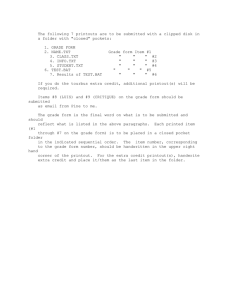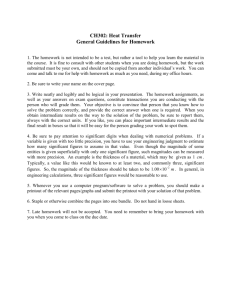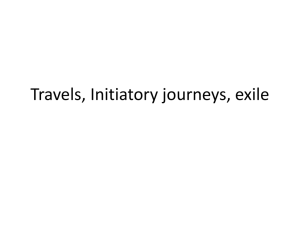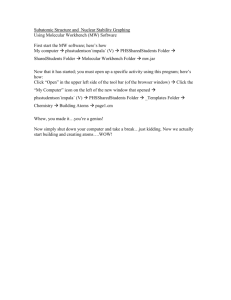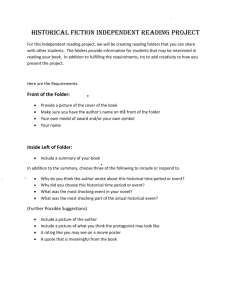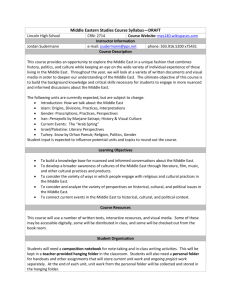EXPLORING GENOMES ASSIGNMENT
advertisement
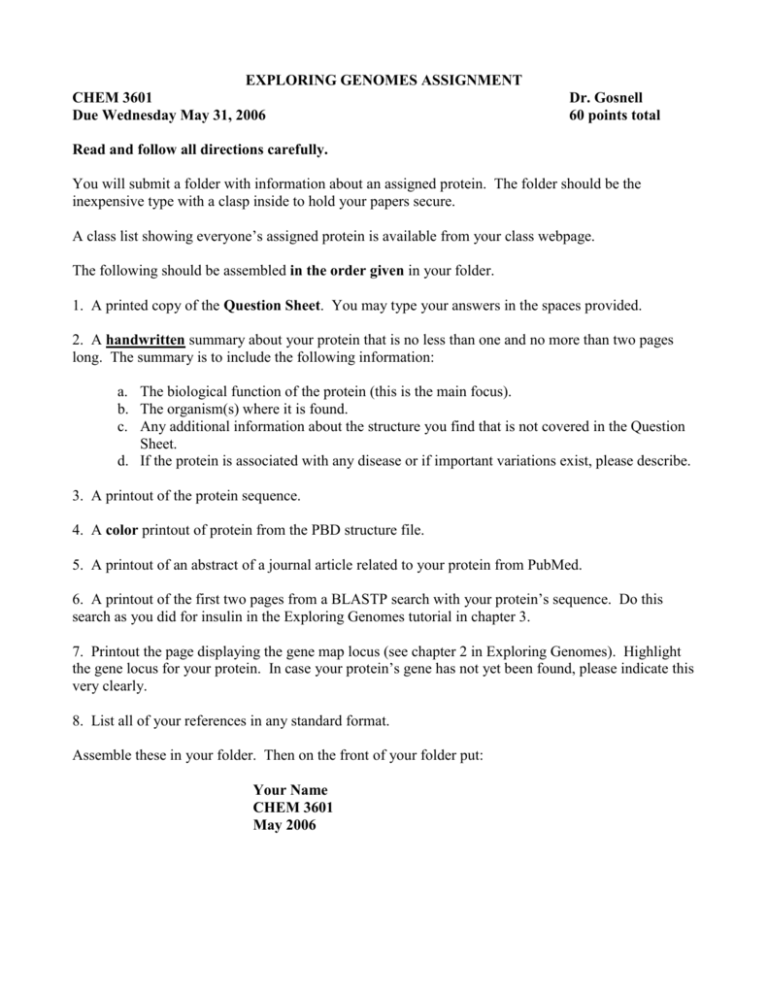
EXPLORING GENOMES ASSIGNMENT CHEM 3601 Due Wednesday May 31, 2006 Dr. Gosnell 60 points total Read and follow all directions carefully. You will submit a folder with information about an assigned protein. The folder should be the inexpensive type with a clasp inside to hold your papers secure. A class list showing everyone’s assigned protein is available from your class webpage. The following should be assembled in the order given in your folder. 1. A printed copy of the Question Sheet. You may type your answers in the spaces provided. 2. A handwritten summary about your protein that is no less than one and no more than two pages long. The summary is to include the following information: a. The biological function of the protein (this is the main focus). b. The organism(s) where it is found. c. Any additional information about the structure you find that is not covered in the Question Sheet. d. If the protein is associated with any disease or if important variations exist, please describe. 3. A printout of the protein sequence. 4. A color printout of protein from the PBD structure file. 5. A printout of an abstract of a journal article related to your protein from PubMed. 6. A printout of the first two pages from a BLASTP search with your protein’s sequence. Do this search as you did for insulin in the Exploring Genomes tutorial in chapter 3. 7. Printout the page displaying the gene map locus (see chapter 2 in Exploring Genomes). Highlight the gene locus for your protein. In case your protein’s gene has not yet been found, please indicate this very clearly. 8. List all of your references in any standard format. Assemble these in your folder. Then on the front of your folder put: Your Name CHEM 3601 May 2006 QUESTION SHEET Protein name ________________________________ Accession number ________________________________ Name of pdb file from the Protein Data Bank ________________________________ 1. What method was used for determining the structure of you protein for the pdb file you found? 2. Is your protein globular or fibrous?______________________________________________ 3. Is your protein oligomeric?_____________________________________________________ 4. Briefly list how many subunits are present (if oligomeric) and describe important secondary structures present in your protein (helices, sheets, etc.) 5. If your protein has any prosthetic groups, list them here. 6. When was your protein first sequenced or when was it first discovered or identified with a particular function? 7. How many conserved domains did you find in your BLASTP search?________________ 8. List below any information (function, other organisms with the sequence, etc.) for at least one conserved domain.
